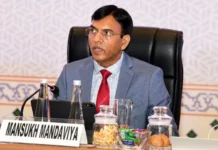
DES MOINES, Iowa: The clear rift over immigration has opened up publicly in the emerging Republican presidential field, with most potential 2016 candidates calling for enforcement of existing laws and outliers Jeb Bush, the former Florida governor, and Sen. Lindsay Graham wanting to offer the estimated 11 million immigrants in the U.S. illegally a path to legal status.
The policy difference emerged in Iowa and will likely remain a key issue as the race for the 2016 Republican nomination unfolds. Immigrants are an important workforce in agriculture and food processing in the early caucus state and around the country. Bush, Graham and seven other presidential prospects, including New Jersey Gov. Chris Christie and former Arkansas Gov. Mike Huckabee, were asked about their views on immigration and other topics at the day-long public forum by their host, Bruce Rastetter, an agribusiness magnate and GOP donor.
“Immigrants that are here need to have a path to legalized status,” Bush, the brother and son of former presidents, said. “No one I know has a plan to round up illegal immigrants and send them back.”
Graham, who was part of the bipartisan Gang of Eight senators who crafted immigration legislation that passed the Senate in 2013 but died in the House, said he favored letting some immigrants living in the country illegally stay, if they met certain conditions, like learning English and paying taxes.
“We need a rational solution to the 11 million, because no Democrat is going to give us everything we want without getting something,” the South Carolina Republican said. “But they’ll agree with me that crooks are not welcome to stay.”
New Jersey’s Christie spoke of broadening the guest worker program as one “piece of an overall approach,” but he offered no specifics.
Huckabee recommended only allowing in immigrants who say they love America, and bar those seeking government dependence. “I think we meet them at the door and say it may not be a good fit.”
Even if immigrants in the U.S. illegally pay taxes, they are ineligible for most federal programs. They cannot legally get food stamps, unemployment benefits, Pell grants or federal student loans. They cannot get Medicaid, except for emergency medical services, and are ineligible for subsidies under President Barack Obama’s health law.
Bush called for restrictions on family immigration to make room for a larger workforce based on legal immigrant labor, which is key to his goal of achieving 4 percent economic growth.
Bush and Graham’s positions are politically risky in Iowa, where conservatives are disproportionately opposed to a path for legal status for those living here illegally.
“I’m sure there’s some support for it, but Iowa Republican caucus-goers don’t feel that way,” said Chuck Laudner, a former Iowa Republican Party executive director.
An Associated Press-GfK poll conducted in December showed only 37 percent of Republicans in favor of allowing immigrants who are already in the country illegally to become citizens, a step further than Bush’s proposed “permanent legal status.”
Although Bush received no applause from the audience for his remarks, that may not matter, said Republican activist and fundraiser Doug Gross.
“He doesn’t need a lot of the folks who are going to make that a defining issue,” said Gross, a Bush supporter and former Republican nominee for Iowa governor.
The discussion also touched on energy, trade and food policy, with many of the candidates grabbing the opportunity to tout any agricultural or Iowa connection they could. -PTI






